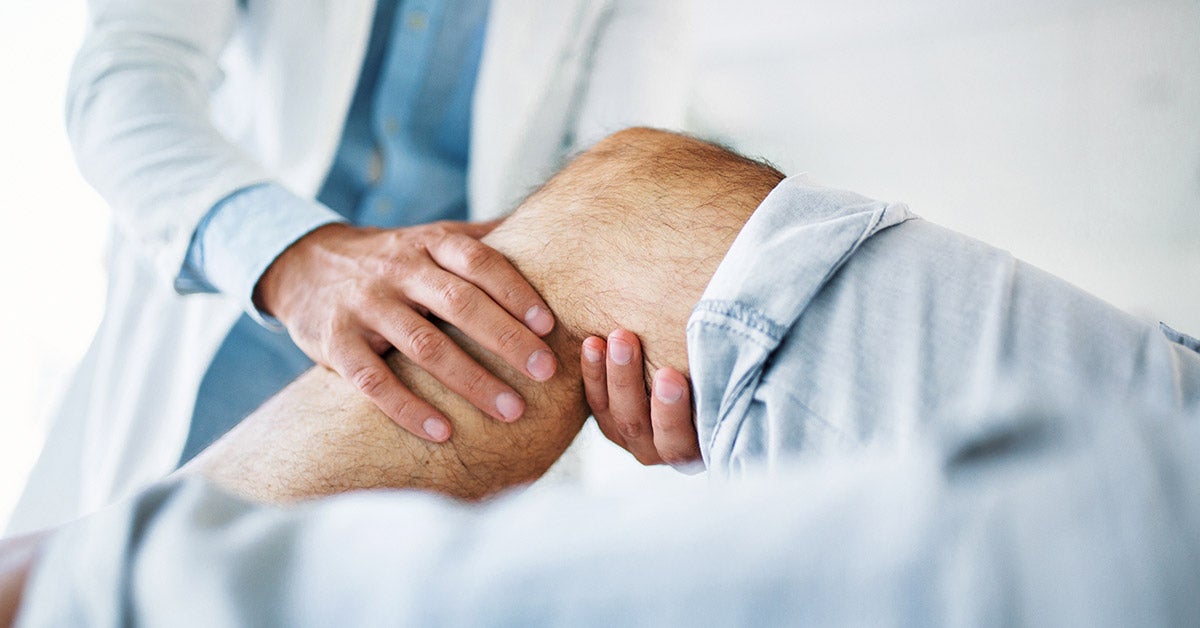Can Constipation Cause Nausea? Causes, Other Symptoms, and Treatment
Healthline and our partners may receive a portion of revenues if you make a purchase using a link on this page.

Constipation is uncomfortable, but it's even more unbearable when it causes other symptoms like nausea.
Nausea is a sensation of queasiness in the stomach. It can cause an unpleasant taste in the mouth and an urge to vomit.
Constipation is infrequent bowel activity, typically fewer than three bowel movements a week.
Experiencing nausea along with constipation can be especially uncomfortable.
Just about everyone has constipation at some point in life, and often it's nothing serious. But even when constipation is short-lived, reduced stool activity can trigger a host of other symptoms like stomach cramps and lower back pain.
Stools that move slowly through the digestive tract cause constipation. This can occur from lack of water in your colon, resulting in dry, hard stools that become difficult to pass.
What's the connection between nausea and constipation?
When your colon isn't working properly, it throws your entire gastrointestinal tract off-balance. As a result, a buildup of stools in your intestinal tract creates a feeling of uneasiness or queasiness in your stomach.
Your bowel plays a role in your body's detoxification process. When it takes longer than normal for food to move through your colon, this causes a buildup of toxins in your body. It's these toxins that cause the sensation of nausea.
Also, constipation can lead to stomach distention and bloating, which occurs the longer stools remain in your colon. This triggers an increase of bacteria in you colon, prompting a nauseous feeling.
Depending on the severity of constipation, you may also experience loss of appetite and begin skipping meals. Some people become nauseous when their stomach is empty.
Other possible causes
Sometimes, constipation and nausea are symptoms of a medical condition. Common conditions include:
Dehydration
Dry, hard stools can happen when there isn't enough water in your body and intestines. Lack of fluids can make it difficult for food or waste to pass through your intestinal tract.
Dehydration can slow bowel activity, resulting in nausea and other symptoms like bloating and gas.
Bowel obstruction
Bowel or intestinal obstruction occurs when a blockage in your colon prevents the passage of stool. Other symptoms of an intestinal blockage can include abdominal pain, vomiting, and abdominal swelling.
Different factors can play a role in this condition. Inflammation in the intestines from Crohn's disease can cause a blockage, as well as infections like diverticulitis.
You may also develop a blockage if you have a hernia or adhesions in your colon. Bowel or colon cancer is another cause of obstructions.
Irritable bowel syndrome (IBS)
This disorder affects the large intestines. It can cause a variety of symptoms including constipation and nausea.
IBS is a chronic condition that causes weak intestinal contractions, resulting in food or stools backing up in the colon.
It's also believed that abnormalities in the nervous system contribute to IBS with constipation. This is due to poorly coordinated signals between the colon and the brain, resulting in weak muscle contractions in the intestines.
Certain medications
Certain medications can cause gastrointestinal side effects like constipation and nausea. These include:
- narcotic pain medications, like codeine and oxycodone
- antihistamines
- diuretics
- antidepressants
- blood pressure medication
- iron supplements
Constipation and nausea may improve as your body adjusts to a drug or supplement.
See your doctor if medication-induced constipation worsens or doesn't improve. Your doctor may need to adjust your dosage or recommend a stool softener to take in conjunction with the drug.
Sedentary lifestyle
The underlying problem of chronic constipation isn't always an underlying medical problem. The problem could be something as simple as lack of exercise.
A sedentary lifestyle can contribute to chronic constipation, and subsequently lead to nausea. Regular exercise helps promote normal muscle contractions in the intestines. This helps stools move easily through the bowels.
While nausea and constipation go hand-in-hand, constipation can also cause other symptoms such as:
- stomach bloating
- flatulence
- stomach pain
An inability to easily pass stools also leads to straining during a bowel movement. Straining too much puts you at risk for hemorrhoids, which are swollen veins in your anus. Symptoms of hemorrhoids include:
- anal itching
- anal pain
- anal bleeding
If chronic constipation leads to nausea, hemorrhoids, and other gastrointestinal problems, treatment can improve the quality of your life. Here are a few things you can try.
Fiber supplements
Eating more fiber can help soften your stools. This can alleviate straining and increase the frequency of bowel movements.
Take over-the-counter fiber supplements as directed, or increase your intake of fiber-rich foods. Good sources include fresh fruits, vegetables, and whole grains. Adults should have between 21 and 38 grams of fiber per day.
Laxatives
Stimulant laxatives trigger intestinal contractions and promote bowel activity. Osmotic laxatives, on the other hand, allow fluid to move through the colon, also promoting bowel activity.
Stool softeners
These are a type of laxative, but they work slightly different. Instead of causing bowel activity, stool softeners moisten or soften hard, dry stools. This makes it easier to have a bowel movement.
Enemas and suppositories
These products eliminate waste from your rectum and relieve constipation. They work by injecting fluid (e.g., soapsuds, water, or saline) into the lower bowel to help empty of the colon.
Enemas and suppositories are effective, but side effects can include nausea and diarrhea. If inserted improperly, there's also the risk of perforation of the rectum or internal damage.
Medication
When over-the-counter products don't work, a number of prescription medications can help relieve constipation. These medications work like laxatives and stool softeners by drawing water into the intestines.
Options include:
- prucalopride succinate (Resotran)
- linaclotide (Constella)
- lubiprostone (Amitiza)
- linaclotide (Linzess)
A few lifestyle changes can also help:
- Increase physical activity. You can improve constipation with regular exercise. Aim for at least 30 minutes of physical activity most days of the week.
- Keep a food journal. This can help you pinpoint certain foods that trigger constipation. You might be lactose intolerant and deal with constipation after eating dairy products. Or, you may have a gluten sensitivity. If so, foods containing gluten may trigger constipation.
- Drink plenty of fluids. This will help to prevent dehydration. Try drinking more water, decaffeinated teas and coffee, and juices.
Find fiber supplements, laxatives, stool softeners, suppositories, and enema kits online.
See a doctor for constipation or nausea that interferes with your quality of life. This includes symptoms that prevent going to work, school, or completing everyday activities.
Also, see a doctor for constipation that doesn't improve after several months. You may have an underlying medical problem, especially if you feel the urge to have a bowel movement, but can't pass stools. This could indicate a blockage in your intestines.
It's also important to seek medical attention for constipation that's accompanied by severe pain, weight loss, or bleeding from the rectum.
Even though constipation can cause nausea, keep in mind that other medical conditions can cause both symptoms. So it's important to see a doctor for any change in bowel activity that doesn't improve or worsens.
-
 6 interesting genetic traits that children will inherit from their parents
6 interesting genetic traits that children will inherit from their parents
-
 7 effects of asparagus on child development
7 effects of asparagus on child development
-
 Does cutting blood hair for babies bring good luck?
Does cutting blood hair for babies bring good luck?
-
 The more babies eat, the higher the height they develop, especially the second kind
The more babies eat, the higher the height they develop, especially the second kind
-
 Children with chicken pox should eat to quickly recover from the disease, without leaving a deep scar?
Children with chicken pox should eat to quickly recover from the disease, without leaving a deep scar?
-
 The more food is cooked, the better it can be for health, especially the second type
The more food is cooked, the better it can be for health, especially the second type
-
 Swollen Lymph Nodes in Groin: Causes, Diagnosis, and Treatments
Swollen Lymph Nodes in Groin: Causes, Diagnosis, and Treatments
-
 Average Breast Size: Are Age, Height, and Weight a Factor?
Average Breast Size: Are Age, Height, and Weight a Factor?
-
 Bumps on Head of Penis: Symptoms, Causes, Diagnosis, and Treatments
Bumps on Head of Penis: Symptoms, Causes, Diagnosis, and Treatments
-
 Teething & Fever are Not Linked, but These Confirmed Symptoms Are
Teething & Fever are Not Linked, but These Confirmed Symptoms Are
-
 Casual Sex Risks and Caring for Your Health: STI Testing and More
Casual Sex Risks and Caring for Your Health: STI Testing and More
-
 HIV Test Accuracy: Chances of False Positives and Negatives
HIV Test Accuracy: Chances of False Positives and Negatives































